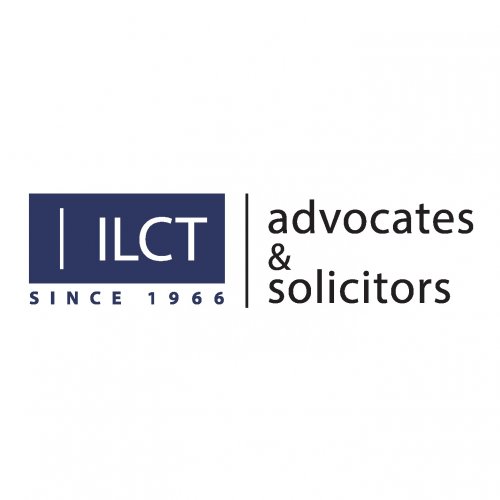About Energy, Environment & ESG Law in Bangkok, Thailand
Energy, Environment, and ESG (Environmental, Social, and Governance) law in Bangkok, Thailand, covers a wide range of legal frameworks that regulate how businesses and individuals interact with natural resources and society. Bangkok, as the capital of Thailand and a major economic hub, is subject to both national and local regulations designed to promote sustainable development, maintain public health, and encourage responsible business practices. Energy laws in Thailand are especially dynamic, reflecting the nation's focus on renewable energy, energy efficiency, and modernization of infrastructure. Environmental laws protect air, water, and land quality, while ESG considerations are increasingly important as businesses and investors look for transparency, ethical conduct, and social responsibility.
Why You May Need a Lawyer
There are many scenarios where you might require legal assistance in the field of Energy, Environment, and ESG in Bangkok. Some of the most common include:
- Planning or operating energy projects such as solar, wind, or traditional power plants, which require regulatory approvals and compliance with environmental standards.
- Dealing with environmental impact assessments and obtaining necessary permits for industrial development or construction projects.
- Facing enforcement actions, such as fines or closures, due to breaches of environmental protocols or energy regulations.
- Handling disputes involving pollution, toxic waste management, or natural resource use between companies, the government, or local communities.
- Integrating ESG criteria into business operations to attract investors or comply with stock exchange listing requirements.
- Reacting to changes in government policy that affect ongoing or planned activities, such as new emissions limits or energy targets.
- Advising on legal risks and compliance in projects funded by international organizations or subject to cross-border regulations.
Local Laws Overview
Thailand has a comprehensive legal framework governing energy production and consumption, environmental protection, and corporate governance in line with ESG principles. Key regulations include:
- Energy Industry Act: Regulates licenses, concessions, and oversight for energy generation, distribution, and sale.
- Renewable Energy Policy: Encourages investment in solar, wind, and other renewable projects, with incentives for compliance.
- Factory Act and Environmental Quality Act: Set standards for emissions and waste, require environmental impact assessments (EIAs), and mandate mitigation measures for industrial projects.
- Hazardous Substances Act: Regulates the storage, use, and disposal of toxic or hazardous materials.
- Corporate Social Responsibility and ESG Guidelines: Although not always statutory, these are promoted by the Securities and Exchange Commission and Stock Exchange of Thailand to ensure ethical, transparent, and responsible management.
- Bangkok Metropolitan Administration (BMA) Regulations: Local laws may set stricter environmental standards or permit requirements within the city.
These laws and regulations are enforced by various government agencies, such as the Ministry of Energy, the Ministry of Natural Resources and Environment, and the BMA. Non-compliance can result in administrative penalties, criminal charges, and civil liabilities.
Frequently Asked Questions
What is an Environmental Impact Assessment (EIA), and who needs one in Bangkok?
An EIA is a study required for many types of development projects, particularly those that may significantly affect the environment. In Bangkok, it is mandatory for projects such as factories, energy facilities, large buildings, and infrastructure to complete an EIA and obtain approval from relevant authorities before beginning construction or operations.
Are there legal incentives for renewable energy projects in Bangkok?
Yes, Thailand offers several incentives, including tax breaks, accelerated depreciation, and feed-in tariffs for renewable energy projects. These are designed to attract investment and promote cleaner energy within the city and nationwide.
What penalties can businesses face for violating environmental laws in Bangkok?
Penalties can include fines, suspension of operations, revocation of licenses or permits, and, in severe cases, criminal prosecution. The specific penalty depends on the nature and severity of the violation.
Do foreign investors need special permits for energy projects in Bangkok?
Foreign investors must comply with licensing regimes under the Energy Industry Act and may face additional requirements under the Foreign Business Act. Legal counsel can help navigate these processes.
How is ESG regulated in Bangkok?
While ESG principles are often promoted through guidelines and voluntary codes, some requirements are becoming mandatory, especially for companies listed on the Stock Exchange of Thailand. These include regular ESG disclosures and compliance with good corporate governance practices.
Who enforces environmental and energy laws in Bangkok?
Enforcement agencies include the Ministry of Natural Resources and Environment, the Ministry of Energy, the Industrial Works Department, and the Bangkok Metropolitan Administration.
Can citizens or NGOs file complaints about environmental violations?
Yes, individuals or organizations can report suspected violations to the authorities. Thailand has mechanisms for public participation and complaints, particularly for environmental matters.
What legal steps are required to start an energy project in Bangkok?
Typical steps include obtaining business licenses, securing EIA approval (if necessary), acquiring land and building permits, and applying for energy operation or production licenses from the relevant authorities.
Are there regulations on waste management for businesses in Bangkok?
Yes, businesses must comply with local and national waste management laws, including hazardous waste handling and disposal procedures mandated by the Bangkok Metropolitan Administration and relevant ministries.
What ESG topics are most important for businesses operating in Bangkok?
Key ESG topics include environmental sustainability, labor and human rights, anti-corruption measures, health and safety, and transparent governance structures.
Additional Resources
If you need further information or support, consider these key governmental bodies and organizations:
- Ministry of Energy - Responsible for national energy policy, licensing, and regulation
- Ministry of Natural Resources and Environment - Oversees environmental protection and conservation
- Office of Natural Resources and Environmental Policy and Planning (ONEP) - Manages EIAs and environmental policy
- Bangkok Metropolitan Administration (BMA) - Handles local environmental and energy regulations
- Securities and Exchange Commission of Thailand - Issues ESG disclosures and corporate governance standards
- Thailand Board of Investment (BOI) - Provides information on investment incentives, including energy projects
- Local environmental NGOs - Such as Greenpeace Thailand and the Environmental Law Foundation
Next Steps
If you believe you need legal assistance in Energy, Environment, or ESG matters in Bangkok:
- Start by identifying your specific issue or project details. Gather all relevant documents, permits, and correspondence.
- Contact a qualified lawyer or law firm with experience in Thai energy, environmental, or ESG matters. Prepare your questions and any specific concerns you have.
- If the issue involves government permits or compliance, consider reaching out to the relevant authority for initial guidance while you seek professional counsel.
- Stay informed about local regulations and keep up to date with changes that may affect your matter. Many law firms and government agencies offer informational seminars or online updates.
- Develop a compliance or legal risk management plan with your legal advisor to avoid future conflicts or violations.
Sound legal advice at the right stage can help ensure your business or project is compliant, sustainable, and positioned for long-term success in Bangkok's dynamic regulatory environment.
Lawzana helps you find the best lawyers and law firms in Bangkok through a curated and pre-screened list of qualified legal professionals. Our platform offers rankings and detailed profiles of attorneys and law firms, allowing you to compare based on practice areas, including Energy, Environment & ESG, experience, and client feedback.
Each profile includes a description of the firm's areas of practice, client reviews, team members and partners, year of establishment, spoken languages, office locations, contact information, social media presence, and any published articles or resources. Most firms on our platform speak English and are experienced in both local and international legal matters.
Get a quote from top-rated law firms in Bangkok, Thailand — quickly, securely, and without unnecessary hassle.
Disclaimer:
The information provided on this page is for general informational purposes only and does not constitute legal advice. While we strive to ensure the accuracy and relevance of the content, legal information may change over time, and interpretations of the law can vary. You should always consult with a qualified legal professional for advice specific to your situation.
We disclaim all liability for actions taken or not taken based on the content of this page. If you believe any information is incorrect or outdated, please contact us, and we will review and update it where appropriate.

















